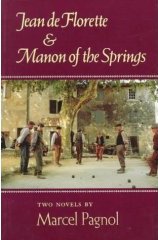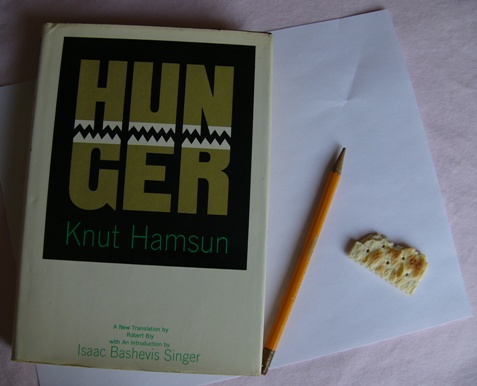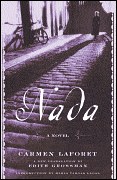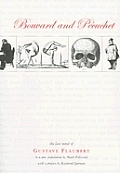Two Novels by Marcel Pagnol
May 23, 2007
 Jean de Florette and Manon of the Springs are two novels that could each stand alone, but are a continuing story that make up The Water of the Hills. The author, Marcel Pagnol, not only had a successful career as an author, but is even better known in the film industry. Frequently when a film is made from a book, and more often when a book is created from a film, one or the other falls short. These two stories are an exception, likely due to the fact that the talented Pagnol is responsible for both.
Jean de Florette and Manon of the Springs are two novels that could each stand alone, but are a continuing story that make up The Water of the Hills. The author, Marcel Pagnol, not only had a successful career as an author, but is even better known in the film industry. Frequently when a film is made from a book, and more often when a book is created from a film, one or the other falls short. These two stories are an exception, likely due to the fact that the talented Pagnol is responsible for both.
The story centers on a virtuous , hard-working hunchbacked man that moves his family near to a small town to start a new life and fulfill a dream. Ultimately, it is the reader that is moved. There is not one specific thing that I would choose that made this book enjoyable. It is, simply stated, a wonderful story.
It occurred to me throughout these two novels, that it was all here- murder, love, lust, altruism, deceit, fear, pity- all of the conflict imaginable- man vs. man, man vs. nature, man fighting internal struggles, man struggling with god. At one point I started ticking off examples of the deadly sins-
- lust
- gluttony
- greed
- sloth
- wrath
- envy
- pride
They are all here, skillfully interspersed with measured amounts of virutous behavior, and Pagnol makes it real., and makes it work. The story stays with one after reading the final pages- it has been difficult to start something new, even two days later.
Because I enjoyed the story so much, I don’t like to point out anything negatuve. But I would have preferred that the book end 10 or 20 pages earlier. Pagnol literally tied up every loose end, and added a few twists that for me at least, were not necessary and didn’t add to my enjoyment of the story.
My Brother is my Uncle
May 17, 2007
I’ve been tagged by gentle reader for the eight things about me meme. The rules are as follows:
- Each player starts with 8 random facts/habits about themselves.
- People who are tagged, write a blog post about their own 8 random things, and post these rules.
- At the end of your post you need to tag 8 people and include their names.
- Don’t forget to leave them a comment and tell them they’re tagged, and to read your blog.
I have not written much about my life on this blog, so I think these will all be new items.
- My brother is my Uncle- not really, and it sounds weird and almost illegal, but- I met my brother’s niece (by marriage) so after we got married her uncle became her brother-in-law, so my brother kind of became my uncle and no, there is no blood relationship and it is legal in all 50 states so you can all lower your eyebrows. 🙂
- I was using the Internet before there was a World-Wide-Web. I started with a Commodore 64 and a 300-baud modem and once dialed in the only access was via telnet or ftp to Unix servers.
- About 5 years ago I couldn’t jog to the end of the driveway, but January 1st of that year I did, and then went a little farther the next day, and farther the next, and in October of that year I ran in the Twin Cities marathon. Over the next couple of years I finished 2 more marathons. I then gave it up since the training is so time consuming, especially for us slower runners.
- I’ve always been interested in the world and everything around me, from the skies to the backyard. I get hooked on something and read everything that I can about it. I can look at the sky and name many stars, and drive down the road and know what each of the trees and flowers are that I pass. I usually get bored after a certain point and move on to something else.
- Since I got out of high school I regretted not learning to play the piano. Early last year I finally decided to start lessons and I have really been enjoying it. I have no plans to ever entertain anyone other than myself. Note- It is never too late to learn something new.
- I’ve worked in Information Technology most of my life, for the days of punch cards and a mainframe that filled a room half the size of a football field, to this day when my laptop has more power than that room sized mainframe.
- In a couple of weeks, I will have been married for 31 years.
- Like most, I enjoy traveling. I went through a time when I didn’t like the lengthy car trips and preferred to fly if possible, but have since learned to enjoy seeing the country from the road.
Seems like most have already done this, so I’m on a quest to find those who haven’t so that I can tag them. I have enjoyed reading everyone else’s lists.
A Well-Earned Nobel Prize
May 8, 2007
Knut Hamsen won the Nobel Prize in 1920, and his first novel, Hunger, by itself would justify the award. Hamsun writes from experience, and that clearly makes the novel extraordinarily compelling in a way that few writers have been able to accomplish throughout my reading life.

According to the overflap of this edition, Hamsun, struggling for 10 years as a writer, went to a publisher in 1888 with this sentence and an unfinished novel-
“All this happened while I was walking about starving in Christiania- a strange city no one escapes from until it has left its mark on him.”
It was first published in magazine form, and two years later the novel was published.
Hunger is about a young struggling writer, living on the erratic and insubstantial income he receives from the occassional publication of articles in the local newspaper. The hero rarely complains, but describes his own decline in all its detail. His ever present hunger, his ongoing starvation, is almost like another character in the novel that moves along what becomes a psychological page-turner. Hamsun wastes no time and sets the mood in the first pages- “As soon as I was wide awake, I took to thinking, as I always did, if I had anything to be cheerful about today.”
Most of us have at some time described ourselves as “hungry.” It is difficult to imagine the horror of real hunger-
“Nothing to do, I was dying with open eyes, helpless,staring up at the ceiling. Finally, I put a forefinger in my mouth and started sucking on it. Something started to flicker in my brain, an idea that had gotten free there, a lunatic notion. Suppose I took a bite? Without a moments hesitation I shut my eyes and clamped down hard with my teeth.
I leaped up. Finally I was awake. A little blood trickled from the finger, and I licked it off. There wasn’t much pain, the wound didn’t amount to anything, but I was suddenly myself again. I shook my head, walked to the window, and found a rag for my finger. While I stood puttering about with that, my eyes suddenly filled, I cried softly to myself. The poor bitten thin finger looked so pitiful. My God, I was a long way down.”
Those are many low moments. But then there are successes. An article is published and a substantial meal is purchased, a room is had for the day, and a candle- to write into the evening. The determination to survive as a writer is always there. There is pride, honorability, friendship, joy, and a brief flirting with love. And always, the hunger returns.
I have no doubt that Hunger is and will remain firmly entrenched on my top 10 list.
On a side note, I finished this as I was sitting on my deck- it is finally getting warm enough in Michigan to spend time outside. I love reading outside. I usually keep my camera around just in case something interesting wanders into the yard. As I was reading Hunger, it occurred to me that for the most part, it is humans- those with the greatest capacity for intelligence, that struggle the most with starvation. How odd. I watched throughout the evening and caught a number of lifeforms foraging in the yard. I realize that on occassion, usually due to the intervention of man, that other animals can starve too. But isn’t it odd that there are so many humans that have to? Foraging in the yard.
Spring Run
May 6, 2007
 I have never had any interest in owning a motorcycle, or even riding one. However, the first Sunday of every May for the last 20 years, I have enjoyed watching the yearly Spring Run that starts a few hundred yards from my home. Hundreds of riders converge at the host site of the National Motorcyle Hill Climb in the Lake Michigan dunes, and all the riders leave starting at 10:30 in the morning. I don’t know what their destination is, but for about 20 minutes they thunder past our house. I enjoy watching and imaging all the interesting events in these “characters” lives, and all the potential stories that could be written. (Obligatory “bookish” twist on a non-reading related posting) 🙂
I have never had any interest in owning a motorcycle, or even riding one. However, the first Sunday of every May for the last 20 years, I have enjoyed watching the yearly Spring Run that starts a few hundred yards from my home. Hundreds of riders converge at the host site of the National Motorcyle Hill Climb in the Lake Michigan dunes, and all the riders leave starting at 10:30 in the morning. I don’t know what their destination is, but for about 20 minutes they thunder past our house. I enjoy watching and imaging all the interesting events in these “characters” lives, and all the potential stories that could be written. (Obligatory “bookish” twist on a non-reading related posting) 🙂 
Some Prefer Nettles
May 5, 2007

Some Prefer Nettles, authored by one of Japan’s great modern novelists, Junichiro Tanizaki, is set in 1920s Japan. The protagonist, Kaname, is struggling with a loveless marriage and a changing postwar culture. From page one, the evidence of a failed marriage is apparent. Kaname and his wife Misako avoid meeting each others eyes. Deciding whether or not to go out for the evening, they are both passive and neither will decide. In what is likely the best sentence in the book, Tanizaki describes the situation-
“It was as if they held a basin of water balanced between them and waited to see in which direction it would spill.”
That was page two. I always struggle with disagreeing with most of the reviews that I have read of this book, but I simply did not enjoy it. There was good writing throughout, and I would not avoid other novels because I didn’t enjoy this one, but the first hundred pages describe Kaname and Misako avoiding reality. Perhaps if the truth had not been apparent so early in the novel, I would not have been yawning half way through.
“He had nothing against his wife. They simply did not excite each other. Everything else- their tastes, their ways of thinking- matched perfectly. To him she was not ‘female’, to her he was not ‘male.’ It was the consciousness of being husband and wife and yet not being husband and wife that caused the tension between them, and had they not been married they could probably have been excellent friends.”
There are interesting and beautiful descriptions of the Japanese are of puppetry as Kaname reevaluates his adoption of western ways, and sees the value of the way of his ancestry. I may try this book again someday, but I doubt it. I have to get over feeling like I am wrong when so many enjoy a book and I do not. Fortunately, their are plenty more on the shelf.
Nada
April 30, 2007
Nada is the first novel of Carmen Laforet, 23 at the time of publication. It was published in Spain in 1944, a few years after the Spanish civil war that left the city of Barcelona in shambles. It is not a political novel however, but a novel of humanity- humanity living on the margins.

Nada is the story of an adolescent, Andrea, who arrives in Barcelona to live with family that she doesn’t know, hoping to continue her studies in the city. Carmen’s prose is incredible, and as always, Edith Grossman’s translation is impeccable. Andrea arrives in Barcelona-
“I began to follow – a drop in the current – the human mass that, loaded down with suitcases, was hurrying toward the exit. My luggage consisted of a large bag, extremely heavy because it was packed full of books, which I carried myself with all the strength of my youth and eager anticipation.”
The novel is written in the first person, although not what I would consider diary form. The book evokes truth to the point that it seems autobiographical, although it is strictly a novel. Andrea’s family is quite, well, crazy. They live in idleness and squalor. They endure hunger and violence. The atmosphere in their home is clouded with distrust, and there appears to be no escape for anyone. Andrea succinctly describes her loneliness-
“Life became solitary for me again. Since it seemed to be something that couldn’t be helped, I accepted it with resignation. That was when I began to realize that it is much easier to endure great setbacks than everyday petty annoyances.”
One finds oneself cheering for Andrea’s survival, for her escape. The family seems hopeless, but Andrea is hope for the future. From the mind of a twenty-three year old author through the thoughts of an 18 year Andrea, come these words-
“I thought, It’s useless to race if we always have to travel the same incomprehensible road of our personality. Some creatures were both to live, others to work, others to watch life. I had a small, miserable role as spectator. Impossible to get out of it. Impossible to free myself. A dreadful grief was the only reality for me then.”
Nada is quite worthy of your attention.
Guilty Pleasures
April 28, 2007
Last night I read Dorothy’s comments about the first section of Elizabeth Gilbert’s Eat, Pray, Love. Gilbert’s text and Dorothy’s comments about Puritan guilt and our inability to easily accept the gift of leisure paralleled my experience yesterday. (I won’t quote the post here, but suggest that you read it).
I had a vacation day yesterday, and regrettably it was one of those afternoon-long outlet shopping days for my wife. Typically I slog along with her for hours, bored, feeling like the day is wasted, hoping and praying for a book outlet around the next corner. Although I dread the experience I always feel guilty if I don’t follow along like a loyal puppy, nodding and smiling at the selections, carrying the bags, and providing stimulating conversation between stores.
Yesterday was different. I brought a book along and read in the car- it was a rather cold, drizzly day in the midwest. I felt guilty the whole time. She said it was fine. She said she preferred it because she always feels rushed knowing that I am just standing there waiting. I still spent much of the time distracted, not only by all the people walking past the car, but by the guilt that I didn’t deserve this time alone- that I should be doing something else.
(Digression alert) I should have parked in a corner of the lot- it is too enjoyable watching the diverse shoppers coping with their colorful bags and bored children. The fragile, elderly couple, bundled up in their sweaters and covered with rainwear heading out with a tentative, measured gait- returning after the trek with a little more pain in their eyes. They are quickly passed by two young men, acting oblivious to the cold and rain in their khaki shorts and now damp tshirts. New white sneakers, strollers, umbrellas, hats, husbands angry about something but eating cheesecake, too-young couples holding hands, piercings and tatoos, screaming kids, and smiles. I love people.
Back to my point – I’m distracted and guilty about being there reading- then I run across a passage in Nada that is different, but parallels what I am feeling.
“All the happiness I enjoyed during this time seemed somehow diminished by my obsession with reciprocating her consideration. Until then no one I loved had shown me so much affection, and I felt gnawed by the need to give her something more than my company, the need felt by all people who are not very attractive to make material payment for what is, to them, extraordinary: someone’s interest and affection.”
I marked the passage and then late in the evening I read Dorothy’s post. Why is it so difficult at times to accept gifts, complements, and even leisure time? Why can’t we accept that we are deserving beings? I wonder if this adds to our stress levels and all those illnesses associated with stress. Personally, I’m going to try to rid myself of those guilty feelings and just be grateful… and spend more time reading in parking lots.
Flaubert’s Masterpiece
April 26, 2007
Madame Bovary is likely the best known of Flaubert’s works, but Bouvard and Pecuchet is considered by many who have read both, to be the better novel. Although I always approach unfinished novels with a little trepidation, the book’s description was intriguing so I took the chance. No regrets- it is the better novel.

Bouvard and Pecuchet are middle aged copy clerks who are thrown together by circumstances, and after discovering a common habit they quickly become friends and coconspirators in a life of leisure, learning, and what appears to be consistent failure. An inheritance funds their lifestyle, but it is their curiosity that drives their pursuit of knowledge.
The friends first embrace farming, and fail. They stumble through fields including philosophy, medicine, politics, education, and literature. They read continuously. They experiment. They discuss and debate. They stumble through one misadventure after another. They do have successes, but that only pushes them further until they fail, even in love.
At first, the novel appears to progress as a comedy of errors. But although Bouvard and Pecuchet appear to be fools, they are not, and there is much that we can learn from them, as Flaubert intended.
The new translation from Mark Polizzotti includes chapter outlines and fragments for additional chapters that were never completed. The novel is followed by Flaubert’s charming Dictionary of Accepted Ideas and Catalogue of Fashionable Ideas. A poorer translation of the Dictionary is available here.
In Defense of John Sutherland
April 23, 2007
Dorothy’s recent post led me to an article by Hermione Lee reviewing recent books written about novels. I was a bit surprised by the review of John Sutherland’s How to Read a Novel, because I read the book a couple of months ago. It wasn’t a heavyweight, enchanting page-turner, like Hermione’s recent 900 page biography of Edith Wharton. It was rather fun, and had many interesting digressions into the whole world of the novel and the reader.
Ms. Lee’s point about the book’s title is valid- it is, admittedly misleading. Sutherland’s first sentence states “An alternative title for this book might be ‘Reading in an Age of Plenty’ or, more eye-catchingly, ‘Reading through the Avalanche’.” Her comment that the novel should have been called “How to Talk Knowingly About a Novel Without Actually Reading It,” simply has nothing to do with the content of the book. Methinks she must have some ax to grind. Sutherland’s premise that there are a deluge of novels in today’s world and that the reader should spend some time choosing what to read next is valid. I think that is clearly in evidence based on the number of bloggers consistently discussing their growing TBR piles.
Lee states-
The book is full of tips, thought necessary in today’s “mind-boggling” age of fiction overload, for finding out quickly whether a novel might be to your taste: “Turn to page 69 of any book and read it. If you like that page, buy the book. It works.” “If a book has chapter titles, then they are worth scanning before purchase.” On no account read every word, there simply isn’t time: “surf and zap…concentrate from time to time where the offering seems genuinely interesting.” If a book is difficult, go for the movie: “It helps get into the book version of Henry James’s The Wings of the Dove or The Golden Bowl…to have seen the films first.”
The page 69 trick, attributed in the book to Marshall McLuhan, was stated by Sutherland in this way-
“For the unprofessional searcher for the best novel to read, word-of-mouth, intuition, powerful browsing and McLuhan’s page 69 test remain the soundest first moves. At the very least, you will make your own mistakes.”
“On no account, read every word. There simply isn’t time.” – note the lack of quotes- in the article. These are Lee’s words, not Sutherland’s. The surf and zap statement was written in this context-
“‘I’ve read the newspaper’, we say, meaning ‘I’ve glanced at the headlines, scanned the letter page. decided not to bother with the editorials, looked up the soccer results and taken in my favorite columnist.’ You can gut novels the same way- but it is hardly ‘reading’…. Nowadays, it seems to me, something like the ‘surf and zap’ approach is required. As with satellite tv and its hundred of channels, one has to skim through, stop where it seems interesting, zap the commercials and other impertinent material, concentrate from time to time where the offering seems genuinely interesting.”
Here is Mr. Sutherland’s words regarding reading a novel-
“Two more humble assumptions are constant: 1)Novels are things to be enjoyed; 2)the better we read them, the more enjoyment we will derive from them. A clever engagement with a novel is, in my opinion, one of the more noble functions of human intelligence. Reading is not a spectator sport, but a participatory activity. Done well, a good reading is as creditable as a 10-scoring high dive. It is, I would maintain, almost as difficult to read a novel well as to write one well.”
The movie statement is out of context as well. Please allow me to add some context:
“films…can serve as useful gateways to fiction- especially demanding fiction. It helps get into the book version of Henry Jame’s The Wings of the Dove or The Golden Bowl -two of the more demanding novels in the canon – to have seen the 1997 and 2000 films first.
But here too, you should be careful. One of the disadvantages of viewing, or previewing, a screen version of a novel, is that you can ‘fix’ your mental imagery too rigidly – infringe your privilege as a reader of casting the parts, setting the scene and playing out the narrative yourself.
Who, for example, when embarking on their annual reading of Pride and Prejudice wants, every year, to have the nipples and wet shirt of Colin Firth intruding between them and the picture of Darcy evoked by the text?”
There is more to be said, but I won’t belabor the point. I’m disappointed in Hermione Lee. I actually had the Edith Wharton biography in my hand last weekend, but opted for something else because it seemed a little intimidating at the time. I have read good things about her Virginia Woolf biography as well. But having read this crappy spin she put on another’s efforts, I’m doubt I will give her a chance.
Sutherland’s book wasn’t great, but it delivered what it was intended to, and it didn’t deserve this attack. I found it interesting, and rather enjoyed it.
 Sherwood Anderson’s iWinesburg, Ohio is a “novel” that takes place entirely in a small Midwestern town during the turn of the century. Although the book is actually a collection of short stories, it is considered a novel because the stories are loosely connected by the town, and by the man, a reporter, considered the “main character.”
Sherwood Anderson’s iWinesburg, Ohio is a “novel” that takes place entirely in a small Midwestern town during the turn of the century. Although the book is actually a collection of short stories, it is considered a novel because the stories are loosely connected by the town, and by the man, a reporter, considered the “main character.”